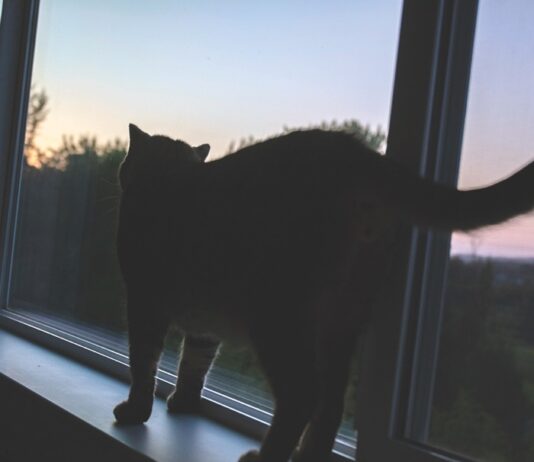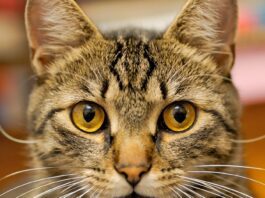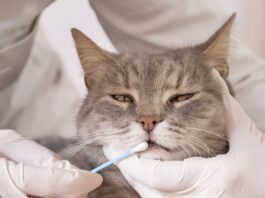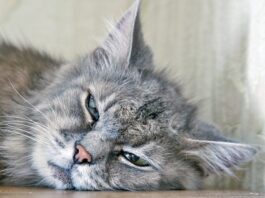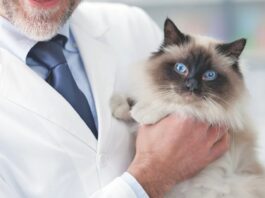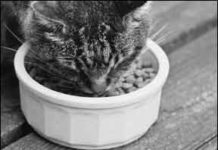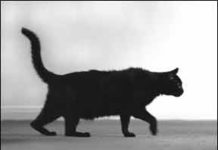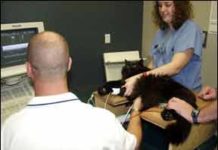Short Takes: September 2012
Biologists at the Royal Veterinary College in London may have discovered the reason for the cheetah’s record as the fastest living land mammal. Researchers at the college’s Structure and Motion Laboratory compared the cheetah’s gait to that of racing Greyhounds, whose speed tops out at 37 miles per hour. The big cats have been clocked at 64 miles per hour. “Cheetahs and Greyhounds are known to use a rotary gallop [in which the limbs fall in circular sequence around the body] and physically they are remarkably similar, yet there is this bewitching difference in maximum speed,” says researcher Alan Wilson, Bsc., Ph.d.
Understand Intestinal Disorders
Of all feline health problems, intestinal disorders rank among those most frequently treated by veterinarians at local clinics and large referral hospitals throughout the U.S. According to Melanie Craven, BVM, an internist and researcher in gastroenterology at Cornell University’s College of Veterinary Medicine, vomiting, diarrhea and dramatic weight loss are the most common signs of feline intestinal disease in cats. However, she notes, subtler signs such as lethargy and appetite fluctuations can also suggest the presence of an intestinal disorder.
Grants to Study FIP and Other Diseases
Investigations into potential treatments for feline infectious peritonitis (FIP), hypertrophic cardiomyopathy and chronic kidney disease were among ten projects selected by the Winn Feline Foundation from 44 proposals to receive $174,018 in funding. The investigation by Belgium researchers to evaluate the efficacy of a treatment for feline infectious peritonitis received the most funding at $24,962.
Short Takes: May 2012
Diagnostic decision-making can sometimes present a challenge to veterinary clinicians when they are presented with an apparently healthy adult cat with a heart murmur. Murmurs can be associated with cardiac disease — though some studies have also identified benign causes of murmurs in cats. Auscultation alone will not differentiate the cause of the murmur and additional diagnostics will be required. Feline murmurs can be inducible (upon physical provocation such as stress, fear or pain) or non-inducible (continuously present). A high percentage of cats with inducible murmurs appear to have no evidence of structural heart disease.
Veterinary Hospice: An Option?
For many years, Katherine Goldberg, DVM, worked in veterinary critical and intensive care units. As she found herself becoming increasingly interested in the stories behind the emergencies, she was moved to make a difference for terminally ill pets. In 2010, she founded Whole Animal Veterinary Hospice Services, a practice whose mission is to provide “compassionate care in the comfort of your home.” She now spends most of her time doing just that. We spoke with Dr. Goldberg at a recent presentation in Ithaca, NY, where her practice is based. What exactly is veterinary hospice? The word “hospice” — which has the same root as “hospitality” — originally meant a place of shelter for weary travelers. In 1969, Elizabeth Kubler-Ross’s groundbreaking book On Death and Dying helped to jumpstart the human hospice movement, and the term “hospice” began to be used to describe specialized care for dying people.
The Latest on Feline Hyperthyroidism
Into the lives of many cats of a certain age comes a certain diagnosis: hyperthyroidism. Susan Steiner’s cat was no exception. At 12 years of age, Grey’s weight had diminished to a mere five pounds. Faced with the less-than-appealing choices of invasive surgery or expensive radiation treatment, she opted for a third choice: medication. Every morning and every evening, Ms. Steiner pulverized a half-tablet of methimazole, carefully mixed the powder with the most appealing canned cat food she could find, and hand fed it to her senior cat. That was 15 years ago. Changes that have since occurred in the world of hyperthyroidism might have made her choices different today.
Short Takes: April 2012
In this recent study (“Prevalence of fecal-borne parasites detected by centrifugal flotation in feline samples from two shelters in upstate New York,” in Journal of Feline Medicine and Surgery, 2011), fecal samples from 1,322 cats from two shelters and foster homes in upstate New York were processed for parasite detection over three-and-a-half years. All samples were processed by zinc sulfate and sugar double centrifugal flotation.
Diagnosis: Diabetic Neuropathy
If you ever try to move around your home very, very quietly — to avoid waking a slumbering child, for example — you may be in the habit of walking on your tiptoes. Normally, however, you will employ what’s termed a “plantigrade” stance. That is to say, you’ll stand and walk with the entire sole of your foot touching the floor. Cats are different from you and your fellow humans in this respect. Unless they’ve suffered an injury or are afflicted with a physical condition that makes it painful or physically impossible for them to do otherwise, they will, by nature, walk on the front part of their feet. Notable among the feline disorders whose presence is signaled by a cat’s inability or unwillingness to walk on its toes is a condition called diabetic neuropathy.
Feline Cardiomyopathy: Serious
To the average cat owner, cardiomyopathy may sound like a scary mouthful of a word — but all it essentially means is disease of the heart muscle. And cardiomyopathy is not one single disorder, but instead a family of heart conditions that can be classified into three types: hypertrophic cardiomyopathy (HCM); dilated cardiomyopathy (DCM); and restrictive cardiomyopathy (RCM). The causes, signs and treatments are different for each of the conditions, and rate of progression and prognosis also vary between individual cats and between breeds.
Diagnosis: Feline Hyperesthesia
You’re nestled comfortably in your favorite chair with your cat dozing peacefully in your lap. You’re petting her gently, stroking her back. You’re happy, she’s happy — but suddenly she lets out a horrific howl and springs violently into the air with her claws out, furiously throwing her head about and trying to bite her own backside as if it had attacked her. Then the episode stops as suddenly as it began — she abruptly flops to the floor and, with a few convulsive jerks, passes out.
Helping Your Child to Grieve
Kids and pets are like peanut butter and jelly — it’s hard to imagine one without the other. They can quickly become the best of friends, playing for hours on end. A child’s best animal friends seem to know to be extra gentle with him, and they are often endlessly patient — calmly swallowing their pride and allowing themselves to be dressed in doll’s clothes, take a bubble bath or just be hauled around on the child’s whim. As such, the attachments between children and their pets can be very real and very strong, making it especially difficult when the pet dies
Short Takes: January 2012
Chronic gingivostomatitis (FCGS) is a significant disease of cats causing ulcerative, painful lesions in the mouth. Unfortunately, the cause of this condition is not always clear, but feline calicivirus has been speculated to play a part in some cases. Medical treatment of this condition has largely remained unsuccessful. Interferon is a protein produced by animals to fight virus infections, and investigators examined the potential of this substance — which can be produced artificially and given orally — to treat FCGS.

